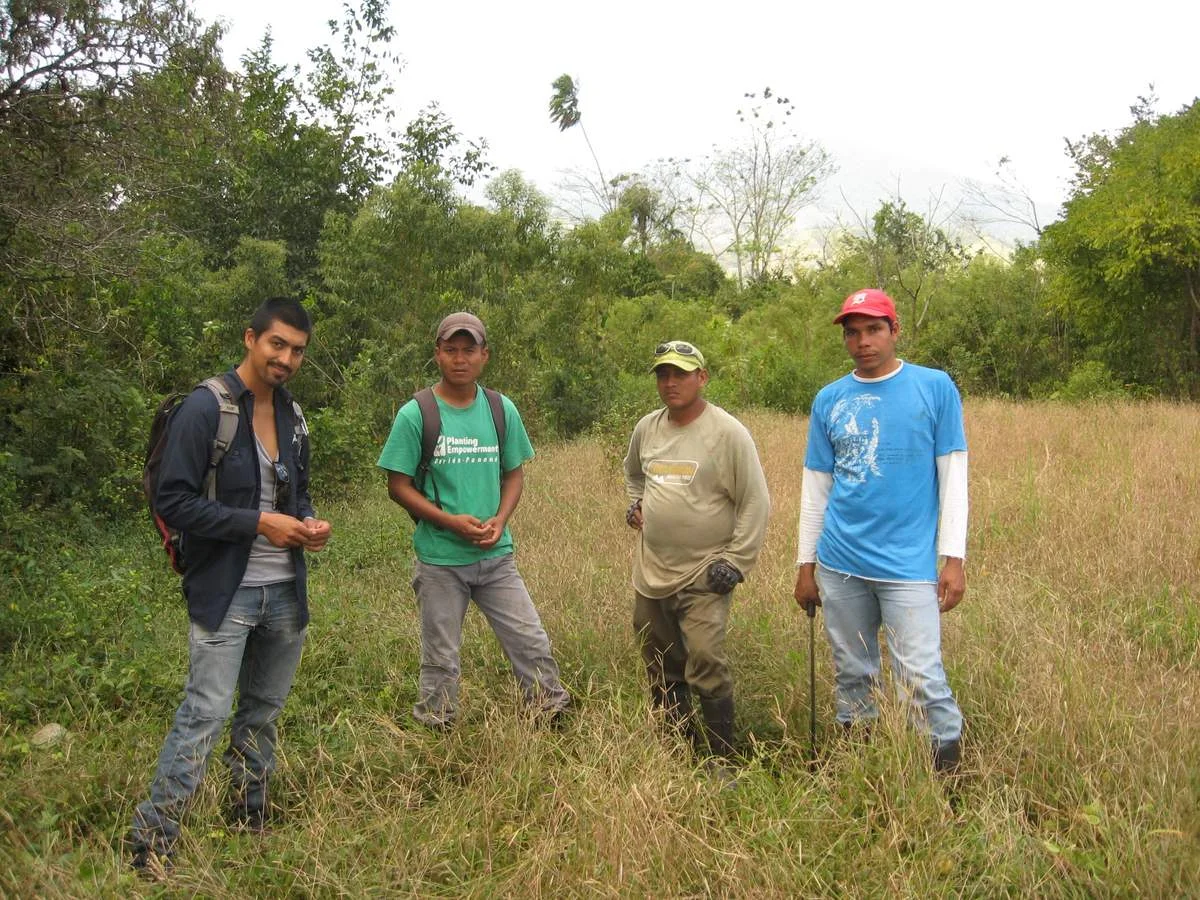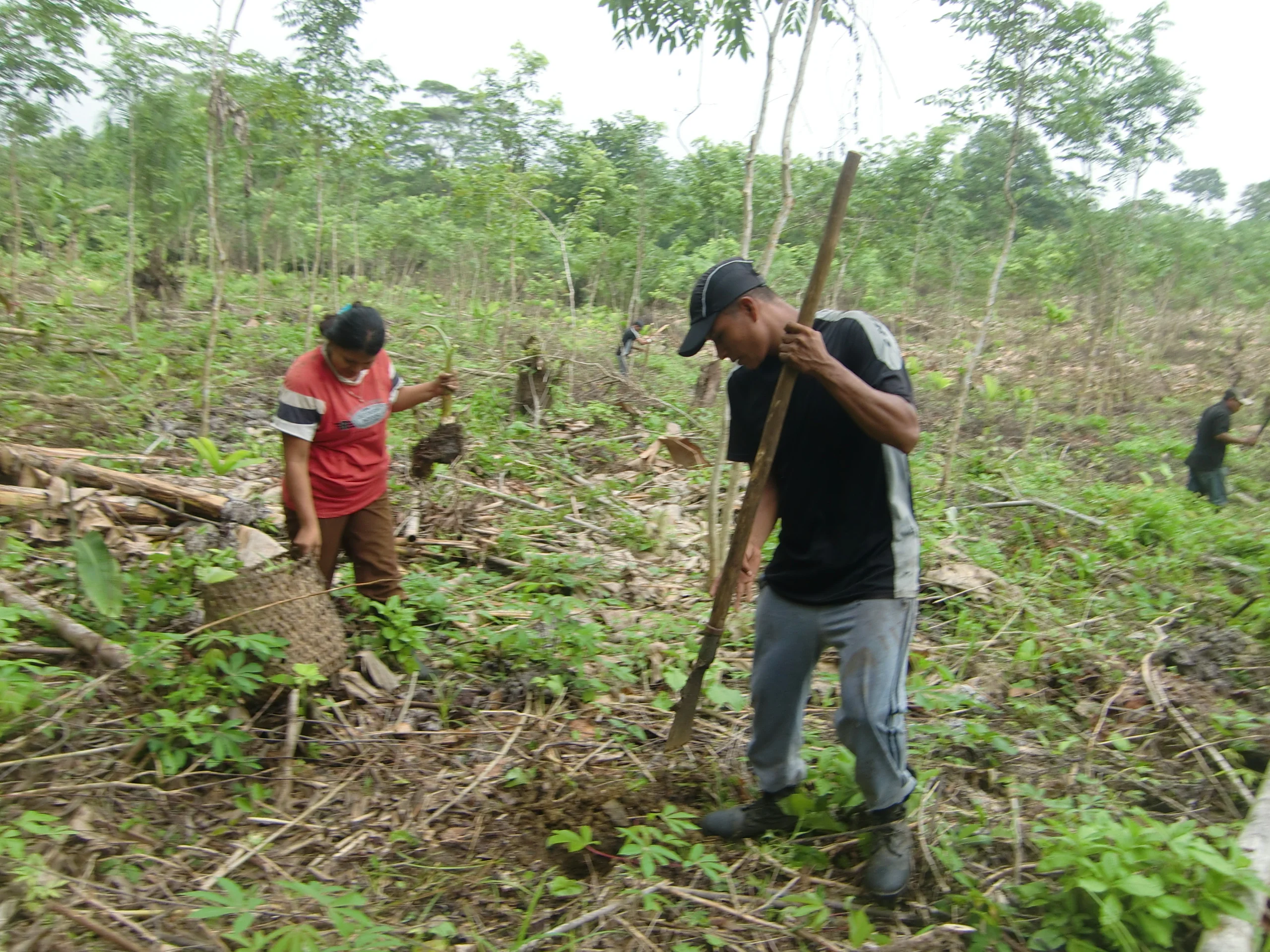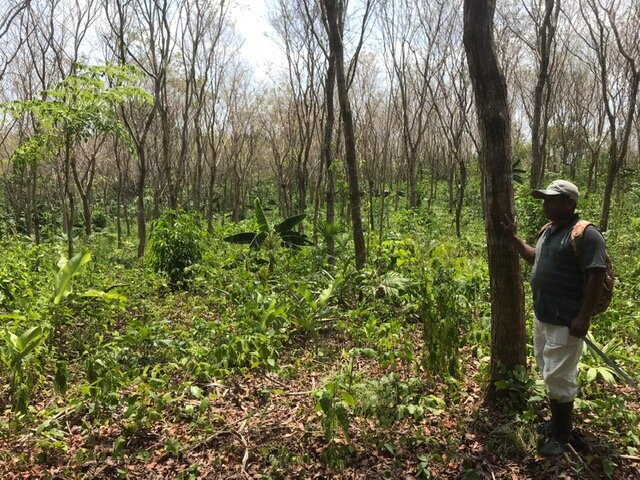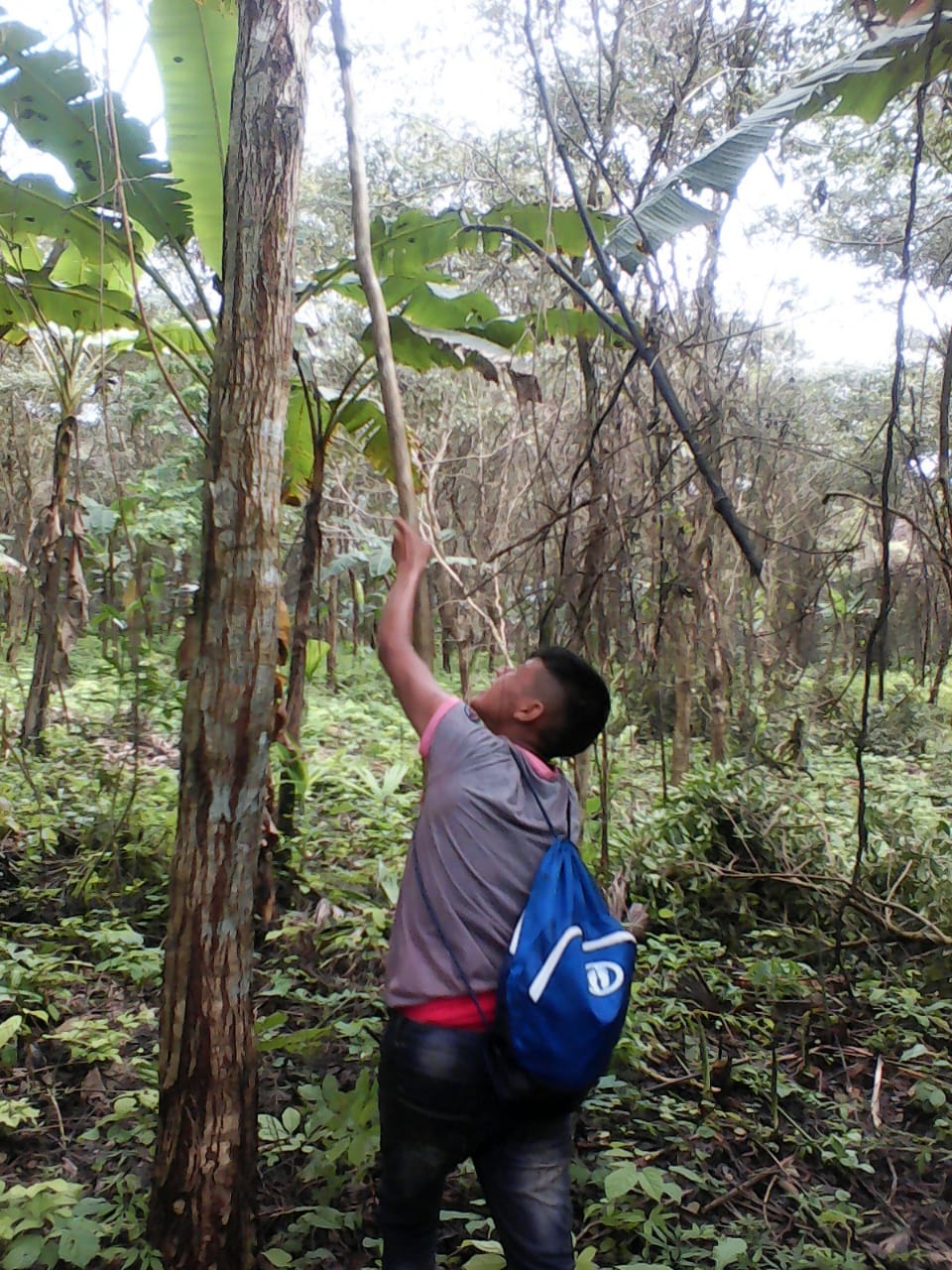 The plantain nursery in Arimae
The plantain nursery in Arimae
Note: This update was originally posted on the loan page for Arimae on Kiva.
Since our loan was funded on Kiva, Liriano and the crew have begun the process of growing the plantain trees. The first step was to build a nursery to incubate the plantain seedlings, so they can be transplanted to the planting site with minimum mortality. In the nursery we can control the water, sun and temperature during the most vulnerable state of the seedlings’ growth. The plastic covering over the nursery raises the heat in the greenhouse, which promotes faster germination. The women from the village of Arimae have taken a leading role in helping to establish and maintain the nursery.
We’re working with a seed called semillas de agua--water seeds--which are high quality. To ensure the highest quality and quantity from the plantain trees, we start with unbruised, two pound seeds with no leaves.
At the prep site, we trim off all the skin from the plantains seed to ensure a large surface area is exposed, then treat them for about 20 minutes with a fungicide and nematicide.
Then we place the seeds into the nursery. The seeds sit on a 1" layer of rice husks, and we surround all the seeds with an organic fertilizer mix containing, rice husks, gallinaza (chicken excrement), dirt, and biochar from our timber projects. The plantain seeds get daily watering and plenty of TLC to encourage rapid growth. As of this writing, they are just starting to sprout leaves.
The average plantain stalk produces three good plantain harvests, or about one per year. Once the plantains are harvested from one stalk, we cut that stalk, and leave the strongest new stalk to regenerate from the same root system as the mother stalk. Or, we can harvest that stalk as a seed for planting and propagate it.
Originally, we thought that the seed incubation would take a month, but it looks like we’ll have to transplant the fastest growers at three weeks. The next stage is planting the seedlings, and we’ll cover that in our next journal update. The community looks forward to planting the seedlings and expects a strong harvest.








